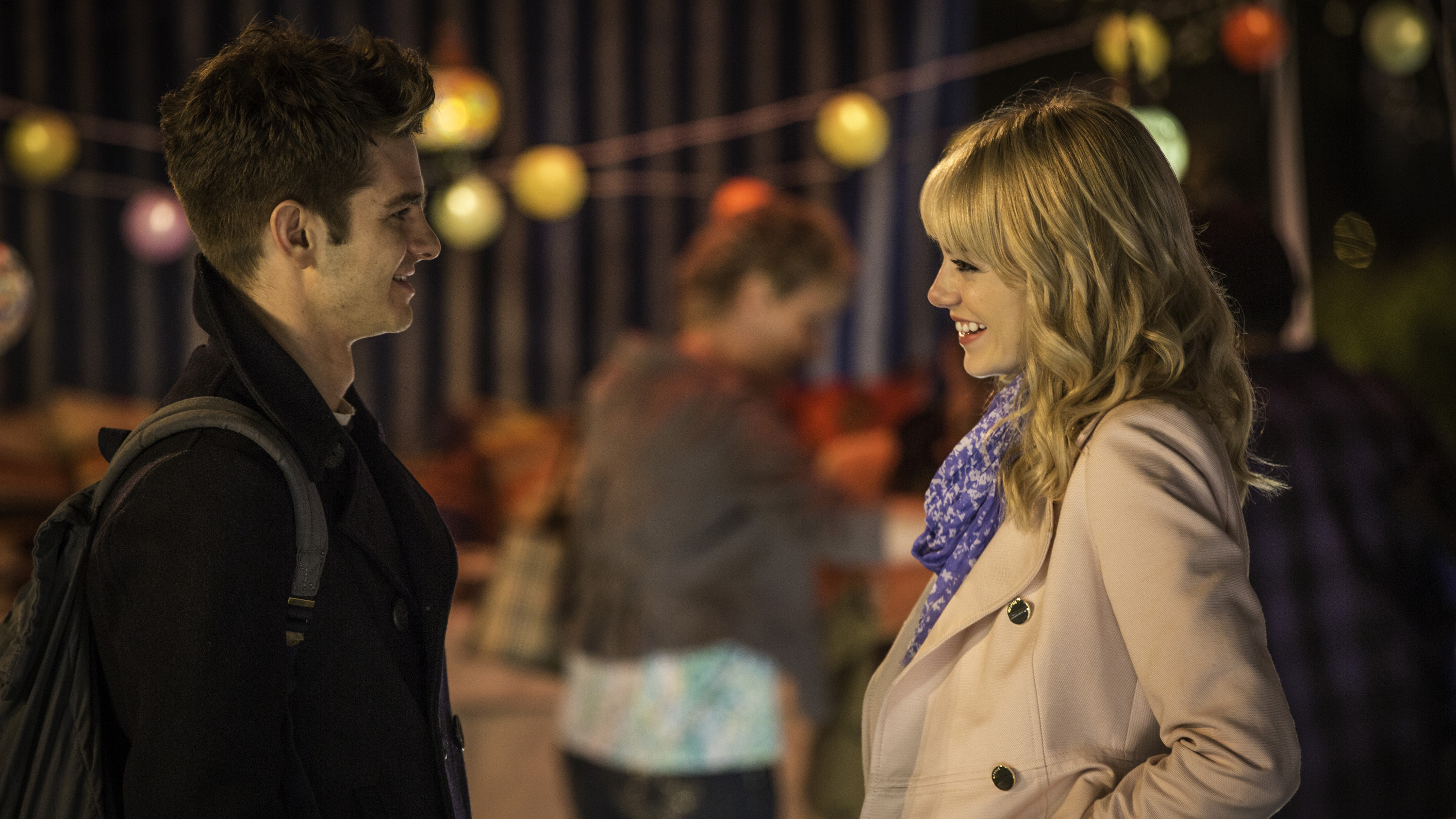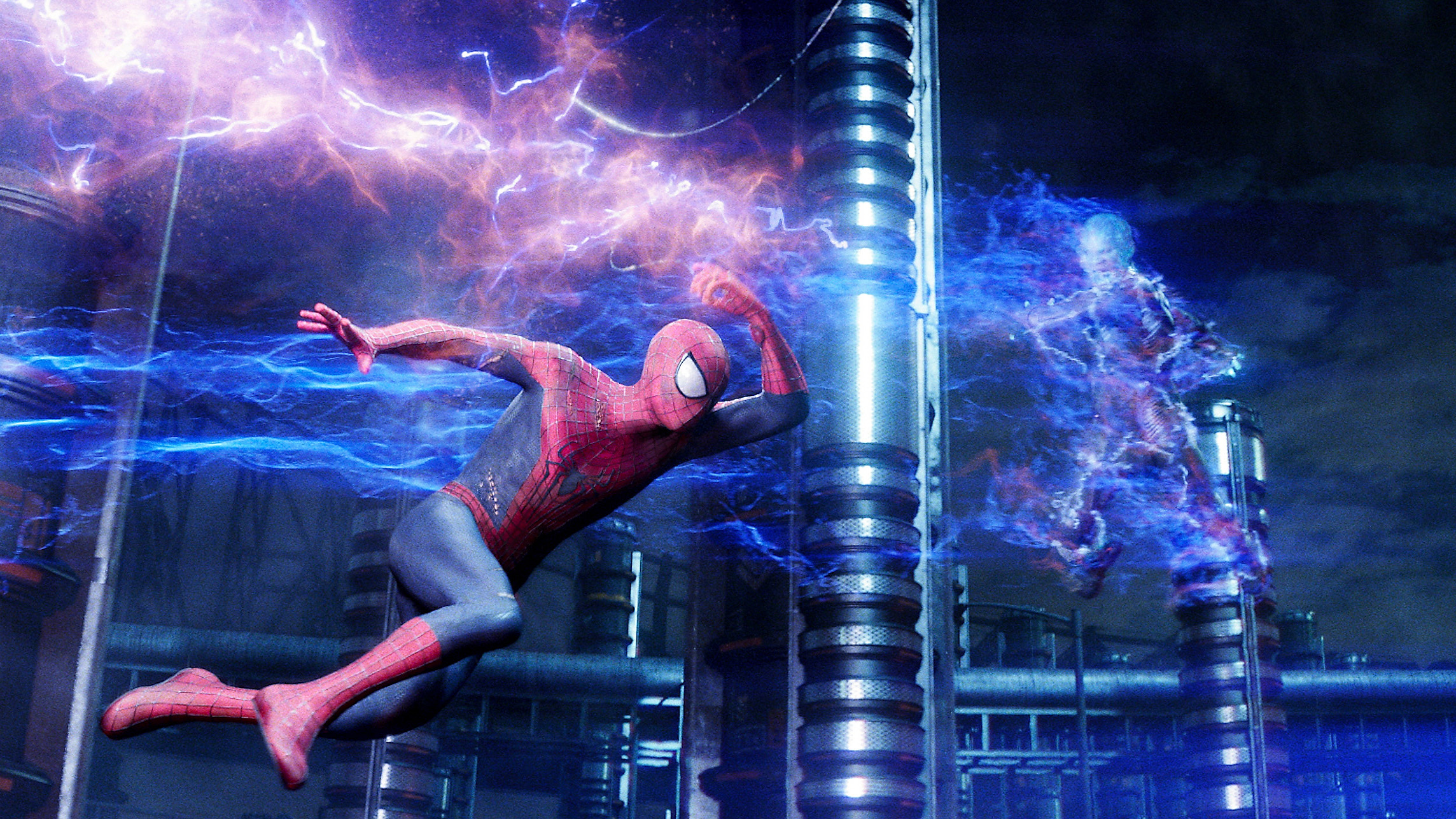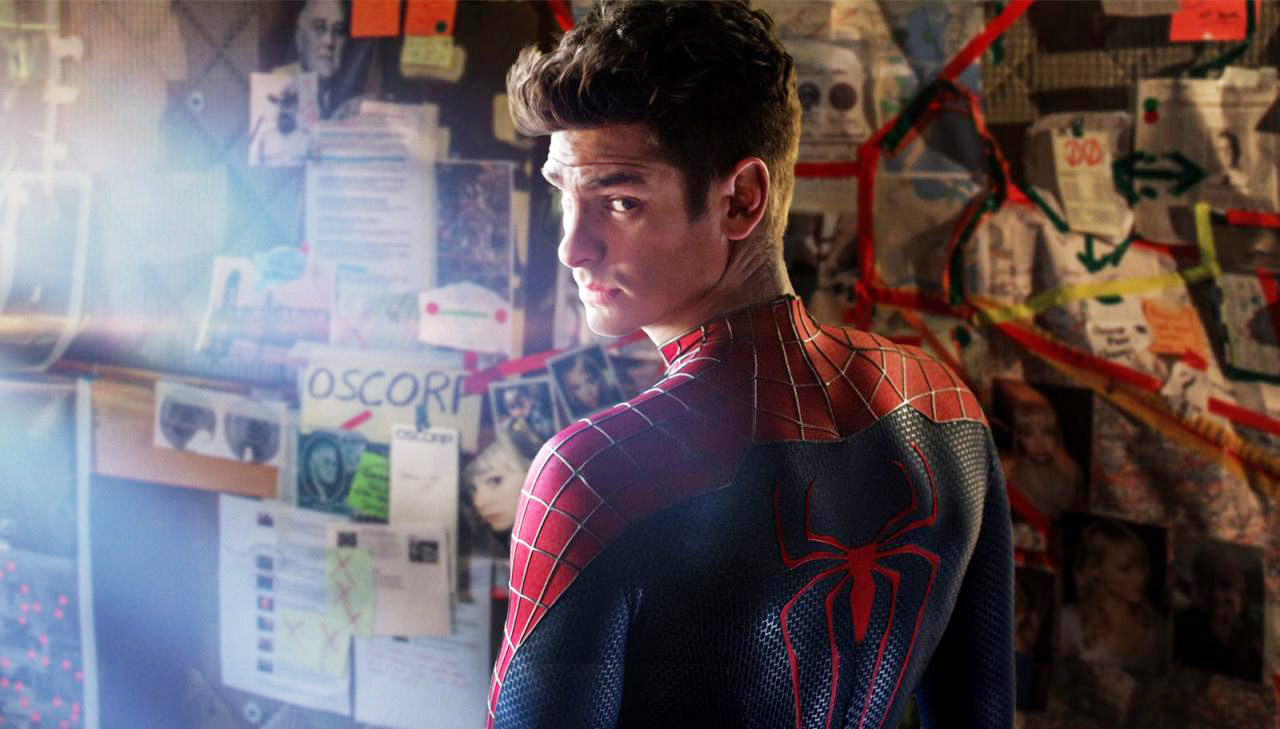GamesRadar+ Verdict
Bright, punchy, and earnest, Webb’s affable sequel is tough to dislike despite its tonal whiplash and clumsy script. Redeemed by Garfield, Stone and DeHaan’s powerhouse trio.
Why you can trust GamesRadar+
No two subgenres are currently ruling the worldwide box office more consistently than superhero and young adult. So for all the backtalk about Sony playing bitter second fiddle to Marvel, their rebooted Spider-Man series does have one major advantage over the competition in that it combines both.
It’s the only young adult superhero franchise in the market, and director Marc Webb once again capitalises on the game charms of young stars Andrew Garfield and Emma Stone, dishing out adorable romance in equal measure with web-slinging action. The Amazing Spider-Man 2 feels, in a word, youthful, with all the goofy exuberance and dubious judgement that implies.
Part and parcel with the teenage lens comes an obsession with parents and what they hand down to their unsuspecting kids. Peter (Garfield) has settled into his Spidey suit but is still haunted by unanswered questions about his parents, who abandoned him in childhood for shadowy reasons unknown. Haunting him too is the ghost of Gwen Stacy’s (Stone) late father, who used his dying breath to warn Peter away from his daughter; this paves the way for some thorny but refreshingly angst-light relationship troubles.

And then there’s Dane DeHaan’s Harry Osborn, a childhood friend of Peter’s who returns to New York just in time to be handed a poisoned chalice by dying daddy dearest Norman (a malevolent Chris Cooper). Garfield and DeHaan being two of the most compelling actors of their generation, they’re unsurprisingly effective together, and Peter and Harry’s reunion gives the former a welcome edge of normality. Unlike Tobey Maguire’s Peter, there’s no sense here of his attempting to live a normal life post-high school – Spider-Man seems to interact with the real world more than Peter Parker does.
The bad guys are a clear strong suit in contrast to Webb’s first film; both Harry and Jamie Foxx’s Max Dillon are villains who only become so because the world has so entirely mistreated them. DeHaan plays Harry like a twitchy, anguished coiled spring, every movement and sentence wound tight – it’s a compelling contrast to Garfield’s energy, all loose limbs and heart-on-sleeve emotion.
There’s real poignancy to Max, too, a nerdy, perpetually overlooked electrical engineer with no friends or family (think Red Dwarf’s Duane Dibley, only doomed) whose obsession with Spider-Man turns nasty after a workplace accident sees him transform into the super-powered, super-pissed Electro. (Even by the standards of evil corporate offices, Oscorp is a health and safety nightmare.)
But it’s hard to shake the sense, given the narrow production window, that the script was rushed into production in less-than-complete form – the fact that Shailene Woodley was cast, filmed and later cut as Mary Jane speaks volumes. Electro becomes superfluous as the increasingly unstable Harry takes centre-stage, and when DeHaan is on screen it’s impossible to look anywhere else. Another reworking of the script could have pared the focus right down to Peter, Harry, Gwen and Oscorp, and in turn cut down the baggy running time by 20 minutes.

But the intention is clear – Sony want their own expanded universe to rival Marvel, since Spidey joining the Avengers will remain the stuff of Garfield and other fans’ dreams. Paul Giamatti’s Rhino and Felicity Jones’s Felicia Hardy are given glorified cameos clearly designed to pay off down the line, in ASM3 or ASM4 or the already-promised Sinister Six spinoff.
What all this means is that the film often seems more focused on franchise-building than storytelling, nowhere more so than in its final few scenes. With Spidey’s quippy wisecracking turned up to 11, Webb seems committed to comedy above all – it’s hard to think of another series that has so effectively used stuntwork as slapstick – which makes for some jarring segues back into darker material.
Stone’s Gwen remains a breath of fresh air for women in comic book movies; she has smarts and spirit and agency without needing to be a quip-slinging badass, and her intuitive chemistry with Garfield remains as much of a joy to watch as it was in 2012. It’s only when the script actively tries for affecting that it falters, bordering on mawkish in some moments with Sally Field’s Aunt May in particular.
Garfield’s raw and heartfelt performance helps to sell the cheese, but the clunky foreshadowing is harder to swallow – a third act gut punch is telegraphed so blatantly and repeatedly that by the time it arrives, half the impact is gone.
Emma Didbin is a writer and journalist who has contributed to GamesRadar+, The New York Times, Elle, Esquire, The Hollywood Reporter, Vulture, and more. Emma can currently be found in Los Angeles where she is pursuing a career in TV writing. Emma has also penned two novels, and somehow finds the time to write scripts for Parcast – the Spotify-owned network that creates thrilling true crime and mystery podcasts.



